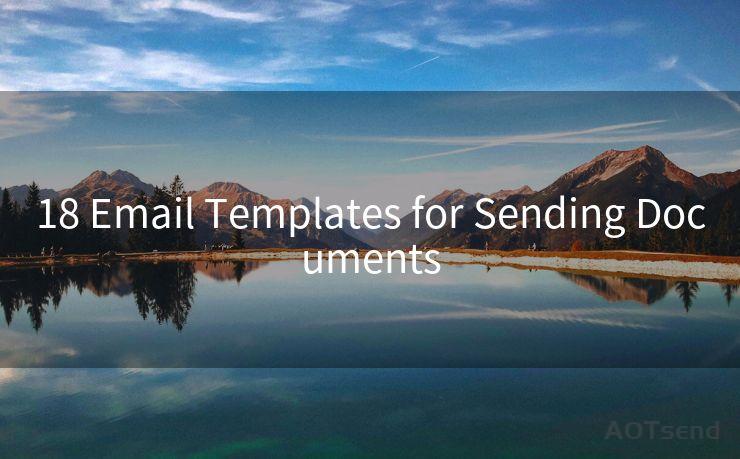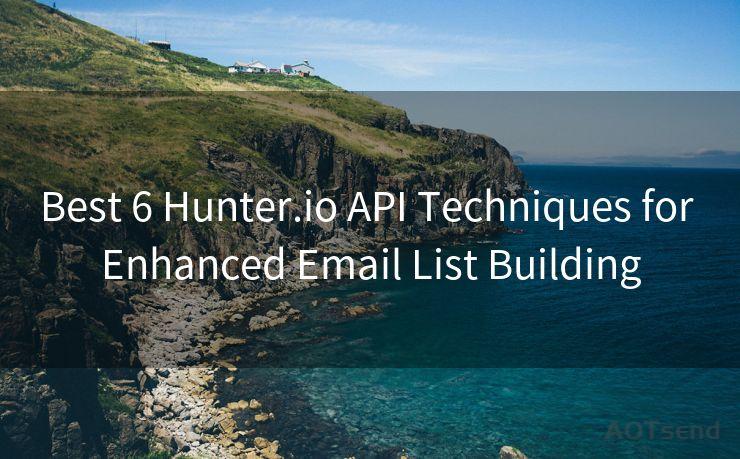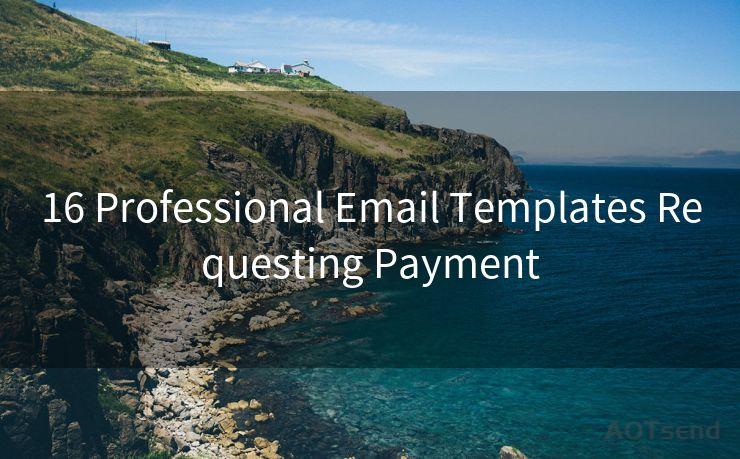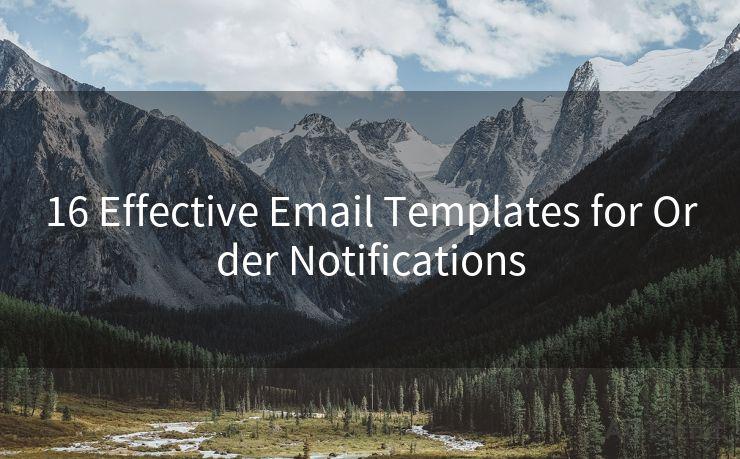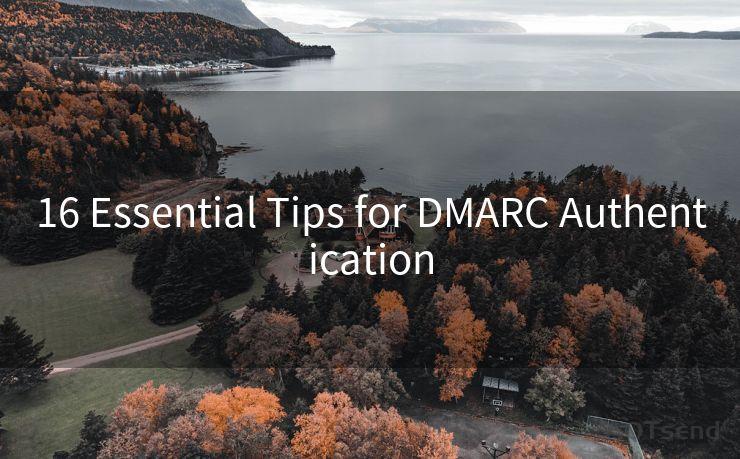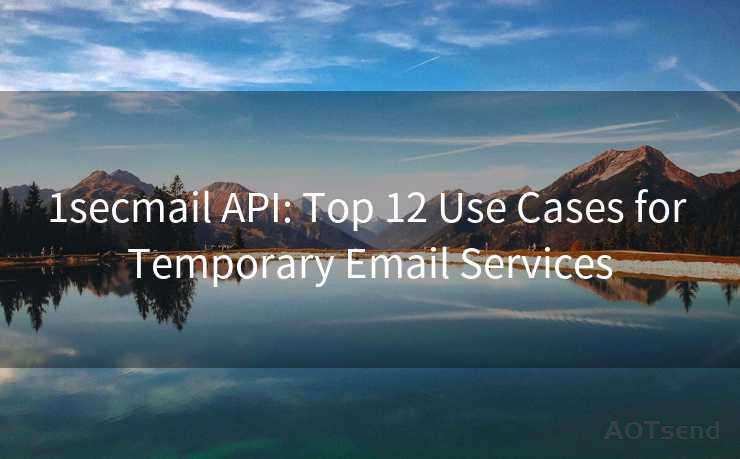17 Gmail API Read Email PHP Best Practices




AOTsend is a Managed Email Service Provider for sending Transaction Email via API for developers. 99% Delivery, 98% Inbox rate. $0.28 per 1000 emails. Start for free. Pay as you go. Check Top 10 Advantages of Managed Email API
When it comes to integrating Gmail functionality into your PHP applications, the Gmail API provides a powerful and flexible way to interact with Gmail data. In this article, we'll explore the best practices for reading emails using the Gmail API and PHP, focusing on seventeen key points to ensure efficient and secure operations.
1. Understanding the Gmail API
Before diving into the code, it's crucial to have a solid understanding of the Gmail API and its capabilities. The API allows you to access Gmail mailboxes, read, send, and modify emails, as well as manage labels, threads, and attachments.

2. Setting Up Authentication
To use the Gmail API, you need to set up OAuth 2.0 authentication. This involves creating a project in the Google Developers Console, enabling the Gmail API, and configuring credentials. Make sure to securely store your client ID, client secret, and refresh token.
3. Installing the Google API PHP Client
Install the Google API PHP Client library using Composer. This library provides convenient methods for interacting with the Gmail API and handling authentication.
4. Reading Emails Efficiently
When reading emails, use the 'q' parameter in the API request to filter and search for specific emails. This helps reduce the amount of data retrieved and improves performance.
5. Handling Large Mailboxes
For large mailboxes, consider using the 'pageToken' to paginate through the results. This allows you to retrieve emails in smaller batches, reducing memory usage and improving response times.
6. Decoding Email Content
🔔🔔🔔
【AOTsend Email API】:
AOTsend is a Transactional Email Service API Provider specializing in Managed Email Service. 99% Delivery, 98% Inbox Rate. $0.28 per 1000 Emails.
AOT means Always On Time for email delivery.
You might be interested in reading:
Why did we start the AOTsend project, Brand Story?
What is a Managed Email API, Any Special?
Best 25+ Email Marketing Platforms (Authority,Keywords&Traffic Comparison)
Best 24+ Email Marketing Service (Price, Pros&Cons Comparison)
Email APIs vs SMTP: How they Works, Any Difference?
Emails in the Gmail API are returned in MIME format. Use a MIME parsing library, such as PHP's imap_mime_header_decode() function, to decode and access the email content effectively.
7. Managing Attachments
When handling attachments, be mindful of file sizes. Consider using the 'maxResults' parameter to limit the number of attachments returned in a single request.
8. Error Handling
Implement robust error handling mechanisms to catch and handle exceptions that may occur during API requests. This helps in debugging and ensures the stability of your application.
9. Securing API Keys and Tokens
Protect your API keys and tokens by storing them securely, such as in environment variables or a secure credentials storage system. Avoid hardcoding them into your code.
10. Monitoring API Usage
Keep track of your API usage to avoid exceeding the quota limits set by Google. Use the Google Cloud Console to monitor your API requests and manage quotas effectively.
11. Caching Data
Consider caching frequently accessed email data to reduce the number of API requests and improve performance. However, be aware of caching sensitive or time-sensitive information.
12. Optimizing Network Requests
Minimize network latency by using batch requests when possible. The Gmail API supports batching multiple requests into a single HTTP request, reducing the overall number of network round trips.
13. Handling Rate Limits
Be prepared to handle rate limits imposed by the Gmail API. Implement exponential backoff strategies to avoid flooding the API with requests when encountering rate limit errors.
14. Testing and Debugging
Write comprehensive tests to ensure your code handles various scenarios, including error cases. Use debugging tools and logs to track down issues and optimize performance.
15. Staying Up to Date
Keep up to date with changes to the Gmail API by subscribing to the Google Developers Blog and monitoring the Gmail API release notes. This helps you stay ahead of any breaking changes or new features.
16. Complying with Privacy and Security Standards
Ensure that your application complies with relevant privacy and security standards, such as GDPR or CCPA, when handling user email data.
17. Providing User Feedback
When integrating the Gmail API into your application, provide clear user feedback during authentication, data retrieval, and error handling. This enhances the user experience and builds trust in your application.
By following these best practices, you can efficiently and securely integrate the Gmail API into your PHP applications, providing a seamless experience for reading and managing emails.




AOTsend adopts the decoupled architecture on email service design. Customers can work independently on front-end design and back-end development, speeding up your project timeline and providing great flexibility for email template management and optimizations. Check Top 10 Advantages of Managed Email API. 99% Delivery, 98% Inbox rate. $0.28 per 1000 emails. Start for free. Pay as you go.
Scan the QR code to access on your mobile device.
Copyright notice: This article is published by AotSend. Reproduction requires attribution.
Article Link:https://www.aotsend.com/blog/p5614.html

